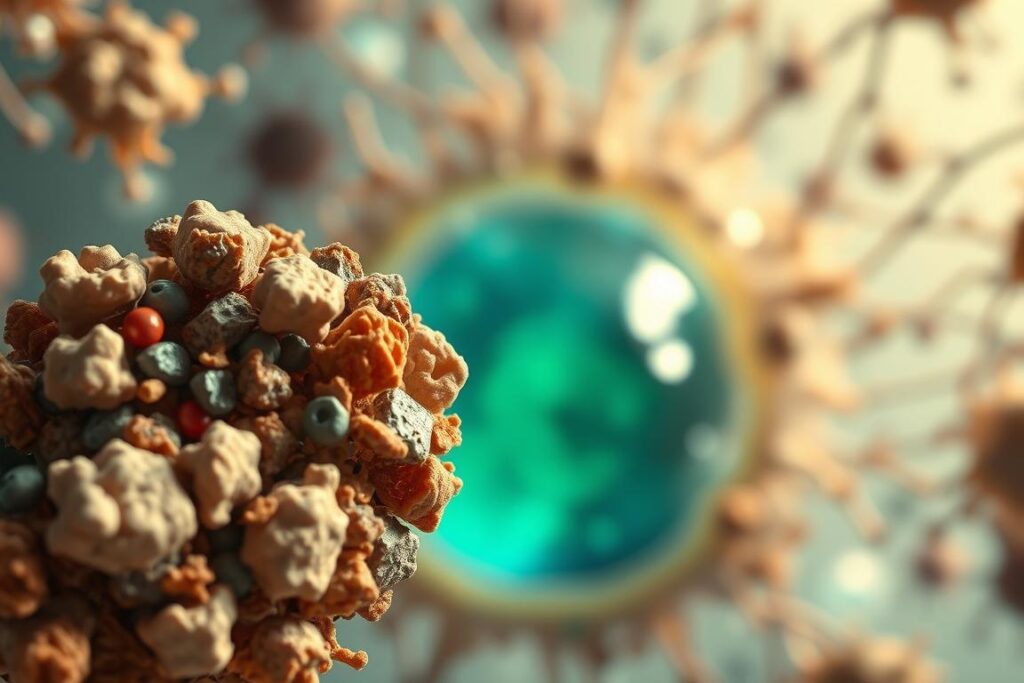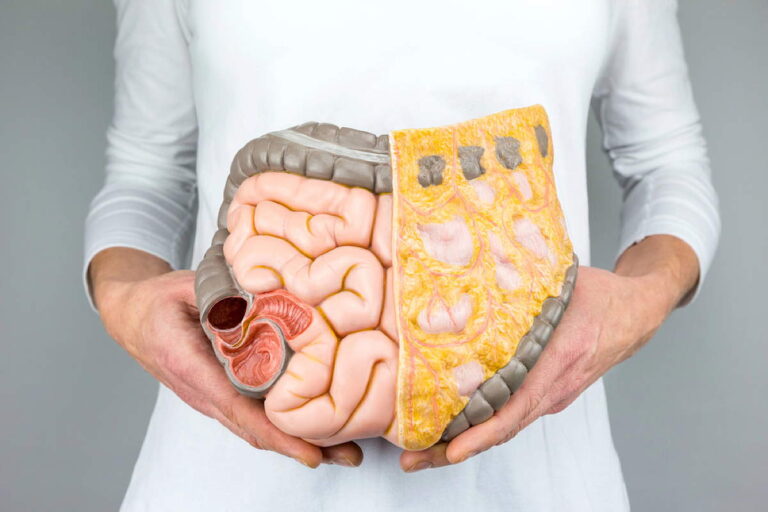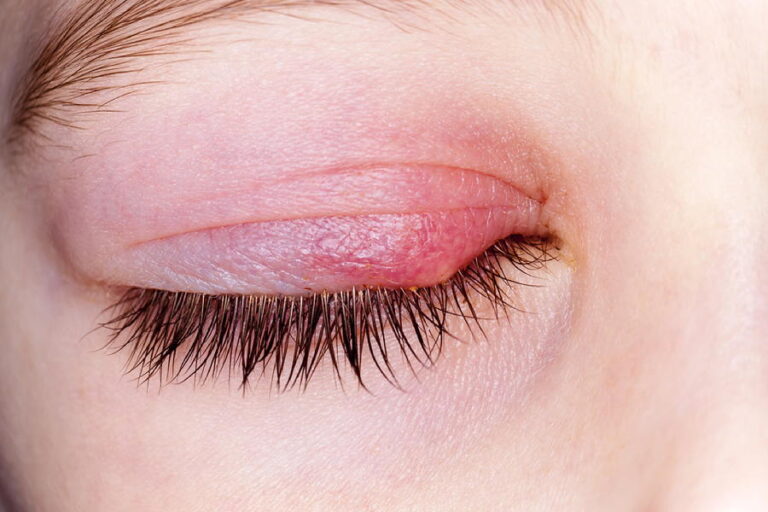Activating autophagy – cell cleansing through fasting and co.
Did you know that fasting activates autophagy after just 12 to 16 hours without eating and is a powerful stimulator of the self-cleansing process? This fascinating method of optimizing health through cellular cleansing has proven to be extremely effective. In this article, we explore how cellular cleansing through fasting, known as autophagy, can help improve health. We look at different fasting methods, scientific findings and practical tips to promote autophagy and maximize the associated health benefits.
Important findings
- ⏳ Fasting activates autophagy, usually after a break of around 12 to 16 hours from eating 🥣🚫 .
- 🏃♂️ Sport also promotes the process – the slight stress stimulus for the body stimulates cell renewal 💪🔥 .
- 🌿 Sirtuin activators such as turmeric or dark chocolate also help to support autophagy 🍫✨ .
- 🥬 Spermidine-rich foods such as wheat germ or mushrooms increase the body’s own protein concentration, which stimulates cell cleansing 🍄🧬 .
- 🥗 A reduced calorie intake of around 500 kcal per day can activate the cells’ self-cleansing process ⚙️🍵 .
What is autophagy?
Autophagy is a fascinating process in which cells break down and recycle unusable components to recover energy and nutrients. This cellular cleansing process plays a fundamental role in maintaining cellular health and preventing various diseases. The definition of autophagy goes back to ancient Greek and means “to consume oneself”. This definition aptly describes how cells use their own components to renew themselves and maintain their functionality.
Definition and origin of the term
The term “autophagy” was coined in 1963 by Christian de Duve, a Belgian cell biologist, and is derived from the ancient Greek word meaning “self-eating”. This definition of autophagy describes a biological mechanism in which cells break down damaged or unneeded components in order to use them as an energy source and thereby optimize cell function. Yoshinori Ōsumi was awarded the Nobel Prize in 2016 for his groundbreaking research on autophagy, which has significantly expanded our understanding of this process.
Autophagy as a cellular cleansing process
The cellular cleansing process of autophagy is controlled by at least 35 genes and involves the conversion of waste products into useful molecules. When the body is deprived of nutrients, such as during fasting or intensive exercise, autophagy is activated. This mechanism can effectively remove defective cell structures, pathogens and unused cell organelles, promoting cell renewal and supporting overall health.
This process is crucial for regulating cell function, fighting disease and producing energy when malnourished. Interestingly, the full effect of autophagy is achieved after 48-72 hours of fasting, which is why a fasting period of at least 72 hours is often recommended. Black coffee and spermidine-rich foods such as cheese, mushrooms, soy germ and wheat germ can support autophagy.
The health benefits of autophagy
The process of autophagy offers a variety of health benefits. The natural breakdown of defective cell components and the strengthening of the immune system can significantly improve overall health.
Strengthening the immune system
Strengthening the immune system is a major benefit of autophagy. By efficiently breaking down damaged proteins and cell components, the immune system can recognize and eliminate harmful pathogens more quickly. This contributes significantly to improving overall health.
Prevention of age-related diseases
Autophagy can prevent age-related diseases such as cancer, Alzheimer’s and Parkinson’s. The breakdown of ageing cells and the formation of new, healthy cells play a central role in the anti-ageing process. This keeps body and mind vital for longer in old age.
Improvement of cell regeneration and longevity
Promoting cell regeneration is another remarkable benefit of autophagy. The body benefits by replacing damaged cells with new, healthy cells, thus prolonging life expectancy. Cell regeneration also contributes to improved metabolic health.
Overall, the activation of autophagy through fasting, certain foods and exercise contributes to improved health and quality of life. These measures not only provide an effective immune system boost, but also anti-ageing effects and optimized cell regeneration.
How fasting influences autophagy
Fasting plays a crucial role in activating autophagy, especially during food deprivation. During this phase, the body responds to cellular stress by removing and recycling damaged cellular components, thereby improving cellular health. The degradation products are converted into useful building blocks that the body uses for various purposes.
During prolonged fasting, when glycogen stores are depleted, the body begins to metabolize fat. This fat metabolism not only leads to energy production, but also to further activation of autophagy, which supports metabolic improvement. Researchers have shown that a fasting period of just four hours is sufficient to activate autophagy, as demonstrated by studies in mice.
In addition, brain AgRP neurons release hunger cues during fasting and simultaneously activate autophagy, especially in the liver. Interestingly, one study found that without the brain signals, autophagy does not even occur during fasting.
Prolonged fasting intensifies the autophagy process even further. Many people report feeling energized after three days of fasting and often extend their fasting period to five days for maximum benefits. In addition to fasting, other methods such as cold therapy and exercise can also stimulate autophagy and improve metabolism, offering long-term benefits such as reduced blood sugar levels, reduced high blood pressure and a lower risk of neurodegenerative diseases.
Various fasting methods to activate autophagy
There are various fasting methods that promote autophagy. These methods vary in terms of duration, diet and intensity. Here are some of the most effective fasting methods for activating autophagy:
Intermittent fasting (16:8 method)
In intermittent fasting, a 16-hour fasting period is observed daily, followed by an 8-hour eating window. This method has been shown to activate autophagy by stimulating metabolism and promoting fat burning. Studies suggest that intermittent fasting can reduce blood sugar fluctuations and improve insulin sensitivity. Additionally, the 16:8 method shows potential to initiate cellular cleansing after approximately 12-16 hours of fasting.
Therapeutic fasting
Therapeutic fasting is one of the most intensive forms of fasting and can last from 4 days to several weeks under medical supervision. During this time, participants consume a maximum of 500 calories per day, which significantly activates autophagy. Studies show that fasting can reduce inflammatory markers in the blood by up to 30%, which supports cellular cleansing processes. This method enables the body to activate its self-healing powers and improve cell regeneration.
Alkaline fasting
Alkaline fasting focuses on the consumption of alkaline-rich foods such as fruit and vegetables, while acid-forming foods are avoided. This fasting can improve insulin sensitivity and reduce inflammation, which contributes to cell cleansing. Adding to the benefits, one study found that alkaline fasting has a positive effect on digestion and the body’s acid-alkaline balance, which in turn promotes autophagy.
Each of these fasting methods offers unique benefits for activating autophagy and should be chosen according to individual preference and health status.
Autophagy – cell cleansing through fasting
Autophagy offers an effective cell cleansing technique that rids the body of unwanted cellular waste. Detoxing through fasting activates this natural process, which can lead to improved cell function and health. One of the most common methods to promote autophagy is intermittent fasting. In particular, the 16:8 method, where you fast for 16 hours and eat within an 8-hour window, is considered particularly effective.
Fasting periods of 12 to 16 hours are often necessary to activate autophagy. In addition, physical exercise, such as endurance training, can also act as a trigger for cell cleansing and have a positive effect on the health of organs such as the liver, heart and muscles. A calorie deficit further enhances this effect and supports cell renewal. Interestingly, coffee can also stimulate cell renewal, as studies on mice have shown.
Good quality sleep and sufficient sleep duration are also important factors that influence autophagy. By taking a holistic approach that combines detox through fasting, exercise and good sleep, you can effectively promote the body’s cell cleansing technique and thus increase overall health and longevity.
The process of autophagy
Autophagy is an essential cellular process that contributes to the cleaning and recycling of cellular components. Specialized cell structures, the so-called autophagosomes, enclose damaged or superfluous cell components.
Autophagosomes and lysosomes
During autophagy, the autophagosomes transport the cellular waste to the lysosomes. These contain enzymes that break down the trapped components. The degradation leads to the disposal of cellular waste and at the same time provides building blocks that can be used for the formation of new cell components.

Recycling of cell components
Cell recycling through autophagy is crucial for maintaining cell health and functionality. This process allows cells to efficiently dispose of damaged structures and regenerate. Studies show that a 20-40% calorie reduction in animals can improve metabolism, reduce inflammation and extend lifespan. Such findings highlight the importance of autophagy for general health.
The role of spermidine in autophagy
Spermidine, a naturally occurring polyamine, is a key player in the process of autophagy. This endogenous method of recycling ensures the cleansing and regeneration of cells and therefore plays a crucial role in cell health and anti-ageing.
Food rich in spermidine
Various foods contain high amounts of spermidine. The top sources include:
- Wheat germ
- Soy products
- Mushrooms
- Matured cheese
- Apples, mangoes and grapes
- Broccoli, cauliflower and spinach
Spermidine can also be taken as a dietary supplement, with a recommended daily dose for adults being 1.2 mg. A spermidine intake of at least 80 µmol per day is associated with a lower risk of death.
Effects on cell health
Spermidine promotes autophagy by activating the cellular cleansing process. This not only supports cell health, but also overall longevity. Studies with laboratory mice show that spermidine improves mitochondrial function and reduces age-related cell damage.
The additional intake of spermidine during fasting can increase the efficiency of cell renewal and thus enhance the positive effects of fasting. These synergistic effects support overall well-being by promoting cell health and autophagy.
Promoting autophagy through exercise
Regular physical activity promotes autophagy by stimulating the metabolism and supporting the breakdown of damaged cell components. The combination of exercise and fasting is particularly effective, as this maximizes cell cleansing and helps to promote health and longevity.
High-intensity interval training (HIIT)
High-intensity interval training (HIIT) is known to increase autophagy. Through repeated short, intense periods of exercise, cells are stressed, which stimulates natural cleansing processes. When combined with intermittent fasting, such as the 16/8 method, metabolic flexibility is improved, allowing the body to draw on fat reserves more efficiently.
“Studies show that fasting reduces the production of pro-inflammatory signaling substances, which leads to a reduction in pain and stiffness in patients with rheumatic diseases.”
Endurance and weight training
Endurance and strength sports play an important role in promoting autophagy. Continuous exertion in endurance sports and targeted muscle strain in strength sports stimulate cell metabolism and accelerate the cell cleansing process. Avoiding sugar and processed foods also supports cellular function and autophagy.
Combination of fasting and sport
The combination of fasting and exercise is particularly effective in supporting autophagy. Intermittent fasting, combined with gentle exercise such as walking or yoga, can promote circulation and elevate mood, which supports the process of cell cleansing. Combining exercise with intermittent fasting and controlled heat exposure, such as sauna sessions, also enhances the effect on autophagy and optimizes physical and mental health.
Nutritional tips to support autophagy
A balanced diet and structured eating habits play a crucial role in supporting autophagy. Through conscious eating and a low-calorie diet, you can effectively promote the autophagic process.
Calorie restriction and healthy eating habits
Calorie restriction is one of the most effective methods for promoting autophagy. Various fasting methods such as the 16:8 method, the 5:2 method and the 1:1 method help to achieve the desired effects. The 16:8 method, for example, involves fasting for 16 hours and eating for the remaining 8 hours. Such healthy eating behavior helps to improve sugar and fat metabolism and thus support autophagy.
During fasting periods, calorie-free drinks such as water, unsweetened tea or black coffee should be consumed. It is also advisable to avoid snacks between meals in order to keep the insulin curve stable and promote fat loss. A low-calorie diet that contains sufficient protein and fiber also helps to prolong the feeling of satiety and maintain muscle mass.
Spermidine-rich foods
Foods that are rich in spermidine also promote autophagy. These include wheat germ, soybeans, fermented soy products, mature cheese, pumpkin seeds, nuts, seeds, mushrooms and cruciferous vegetables. These foods should be regularly included in the diet to improve cell health and efficiently support autophagy. The “Hara Hachi Bu” principle from Japanese culture, which states that you only eat up to 80% of your full capacity, is also associated with longevity and promotes autophagy.
Autophagy and anti-ageing
Autophagy is a natural process of cell cleansing and regeneration in which damaged cell structures are recycled and replaced. This mechanism plays a crucial role in anti-ageing, as it delays cell ageing and counteracts inflammatory processes. Specific triggers such as fasting and a calorie-reduced, balanced diet activate autophagy, which requires at least 14 to 17 hours without food intake.
Delaying the cell ageing process
Low insulin levels signal the body to draw on its energy reserves, which initiates the onset of autophagy and leads to complete cell rejuvenation after about 72 hours. This delay in the cell ageing process helps to maintain the youthful function and structure of cells.
Reduction of inflammatory processes
In addition, autophagy has a strong anti-inflammatory effect. By reducing inflammatory processes, the risk of age-related diseases is reduced. In addition, measures such as endurance and weight training as well as foods with a high spermidine content can strengthen the effect of autophagy and contribute to improved cell health.
The effects of fasting on the metabolism
Fasting can bring about profound changes in the metabolism and is known for its positive effects on health. These include metabolic improvement and the prevention of diseases such as diabetes. Reducing calories lowers insulin levels, which improves insulin resistance and activates autophagy.
Changes with prolonged fasting
With prolonged fasting, especially after around 72 hours, the full effect of autophagy unfolds. Insulin levels remain constantly low, allowing the body to burn fat efficiently and dispose of damaged cells. Fasting methods such as therapeutic fasting promote cell regeneration and strengthen the metabolism. A calorie consumption of less than 750 kcal per day can support cell health.
Insulin resistance and diabetes prevention
Animal studies show that intermittent fasting can prevent the development of type 2 diabetes by improving insulin processing and promoting toxin degradation in the liver. Regular fasting contributes to improved insulin sensitivity and thus prevents the development of insulin resistance. Methods such as the 16:8 method or the Buchinger method, which involves a low calorie, low protein diet, provide additional essential nutrients while reaping the benefits of fasting.
Risks and side effects of fasting
Although fasting can offer many health benefits, there are also potential fasting risks and side effects of fasting that deserve special attention. People with certain pre-existing conditions and individual risk factors are particularly at risk. The most common side effects of fasting include headaches, dizziness, bloating, bad breath, mood swings and sleep disorders. The risk of a yo-yo effect after fasting is also relevant, which can lead to rapid weight gain if the diet is not adjusted.
Individual risks and pre-existing conditions
Fasting is not suitable for everyone. Particular caution is advised for people with severe heart and kidney disease, cancer, gout, gallbladder problems, metabolic disorders, low blood pressure, underweight or advanced age. Pregnant women, breastfeeding mothers, children and adolescents should also avoid fasting as it can have a negative impact on their health. People with eating disorders such as bulimia and anorexia run the risk of further harming themselves through fasting.
Excess and possible negative effects
Prolonged fasting can lead to serious fasting risks, such as stress reactions, muscle breakdown and possible kidney stones. The loss of muscle mass can increase due to the breakdown of muscle protein for energy production. Another problem is the so-called yo-yo effect, which can lead to a rapid increase in weight if eating habits are not changed after fasting. The side effects of fasting are manifold and should not be underestimated. Excessive fasting without medical supervision and adjustment to individual needs can be harmful in the long term.
Scientific research on autophagy
Scientific research into autophagy has made significant progress in recent years. Of particular note is the Nobel Prize-winning work of Yoshinori Ōsumi, which has greatly expanded our understanding of this cellular cleansing process. Autophagy is a process in which cells dispose of and recycle their own waste by packing damaged or excess cellular components into a double-membrane pouch (autophagosome) and transferring them to the lysosome, which degrades and recycles the cellular debris (Liang et al., 2018).
Nobel Prize-winning research
Yoshinori Ōsumi was awarded the Nobel Prize in Physiology or Medicine in 2016 for his discoveries of the mechanisms of autophagy. His research has laid the foundation for a better understanding of how cells dispose of and recycle damaged components. This is particularly relevant for degenerative diseases and the ageing process.
New findings from current studies
Recent studies show that fasting and calorie restriction can activate autophagy. A publication in Nature Metabolism describes how twelve healthy volunteers experienced significant changes in their metabolism and in the protein composition of their blood after a seven-day water fast. It was found that after three days of fasting, around a third of the 3,000 proteins measured in the blood showed altered levels, indicating systemic adaptations.
During fasting, the brain releases the hormone corticosterone, which triggers autophagy in the liver. These changes began significantly after three days, suggesting that short-term fasting may not have the same effects. The process involves about 3,000 AgRP neurons in the hypothalamus that send signals to activate autophagy. By blocking the transmission of signals from the brain to the liver, autophagy itself can be prevented during fasting.
Optimizing health through autophagy
Optimizing health through autophagy can be achieved on various levels. Practical steps such as adapted fasting, a targeted diet and regular exercise play a key role. Fasting methods such as intermittent fasting (e.g. 16:8 method), Buchinger fasting or even long-term fasting can activate autophagy through the induced nutrient deficiency and thus contribute to health optimization.
A balanced diet that includes autophagy-promoting nutrients such as spermidine (found in avocados, nuts, fermented cheese and apples), omega-3 fatty acids and antioxidants (e.g. green tea, turmeric) can support cell cleansing. Foods such as green tea, turmeric and foods rich in resveratrol (e.g. red grapes) are known for their autophagy-inducing properties and contribute significantly to improving quality of life.
Regular physical activity is another important aspect of promoting autophagy. Research shows that both High Intensity Interval Training (HIIT) and gentler practices such as Vinyasa Yoga and Yin Yoga are particularly effective, especially when combined with fasting. These measures contribute significantly to health optimization by stimulating the autophagic process and thus contributing to cell regeneration and overall health.





